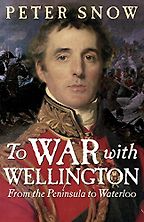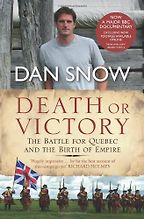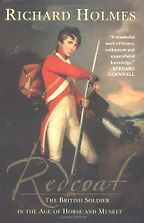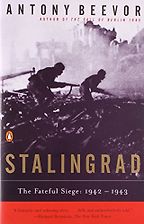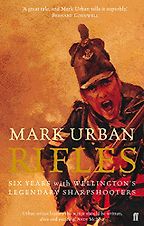For those of us who just think of Wellington as a war hero, what other important things did you discover about him while writing this book?
My initial impression of Wellington was that he was brilliant on the battlefield but that as a person he was the embodiment of the stiff upper lip, an aloof, withdrawn and insensitive man with little regard for anyone’s feelings. I changed my view as I got deep into researching this book, and digging into the great treasure =house of eyewitness accounts which bring the personalities of Wellington and his men alive in such colourful detail.
Yes, he was a tough and ruthless commander, but he was a man capable of deep feeling too, a much more complex person than the Iron Duke of legend. I was struck by the number of occasions when he allowed himself to give way to his emotions. He wept when he saw the carnage in the breach at one of his great sieges at Badajoz in 1812. And he memorably said of the huge number of dead and wounded at Waterloo: ‘Next to a battle lost, the deepest misery is a battle gained.’
Your wife and sister-in-law were very keen that you focus on the human story as well as the battles.
Yes, my wife and sister-in-law were indeed valuable influences on me: I made it my business to describe much more than the experiences of the men on the battlefield. Their vivid accounts of the conditions in which they lived and camped, the primitive state of medicine and the mischief they got up to in their spare time provide a compelling picture of army life in the early 1800s.
And what did his men make of him?
Wellington was feared, respected and admired by his men, but he wasn’t loved. They feared him because he was a severe disciplinarian who would not hesitate to impose the severest penalties on those who offended. And to him offending was doing anything that risked losing the support of the local people – the Spanish and Portuguese – on whose support his long campaign to push the French out of the Iberian Peninsula depended.
When he heard of anyone stealing from local farmers, for example, he would order them to be hanged immediately. To most of his men he was, in the words of one of them, ‘that long nosed beggar wot licks the French’. Whatever they may have thought of him, his men knew he never lost a battle he fought, and that made them trust his judgement and follow him through thick and thin.
So how is it that he went on to become such a military hero, despite the unpromising beginning that you write about, where he is described as a thick younger brother who didn’t really make it at Eton?
He was one of those people rather similar to Winston Churchill who blossomed in their late teens and early 20s. His mother despaired of him: she called him her ‘awkward son Arthur’. But things changed when he went to an equestrian school in France, where he became a superb horseman, learnt French and gained in self-confidence. He bought a commission in the army and found that he was a natural soldier and commander.
He developed a sharp eye for the terrain and a great sense of timing. He knew when to move the key units that would defeat the enemy. He was always up near the frontline where the decisions needed to be made all the time during a battle. He was tireless, restless and always in charge. His constant winning streak won him the trust of his men and of the government back home.
Tell me about your next choice, Death or Victory by your son Dan Snow?
This is an account of the Battle of Quebec in 1759 and the key role in the victory there of Britain’s General Wolfe who managed to secure Canada for the British Empire. France and Britain were in global rivalry with each other and the British didn’t want to lose North America to their enemies. Quebec was the French Canadian capital and it had to be seized by the British. Dan describes the daring attack by Wolfe’s army in brilliant detail.
I learnt a lot from reading Dan’s book. It helped inspire me in the writing of my own book on Wellington because he secures the reader’s attention with a skilful use of narrative. He drives the story on throughout the book, using an amazing amount of scholarly research. I had great ease getting my eye-witness accounts for my book on Wellington. I know how much trouble he had finding eye-witness material in a period 50 years before the great surge of writing in the Napoleonic War. But he managed to find remarkable accounts of the extraordinary story of the fight for Quebec. We learn how General Wolfe found the way up the Heights of Abraham and forced the French to do battle. It is a masterly piece of storytelling.
You have written two books together. How does that work?
With each of the books, Battlefield Britain and Twentieth Century Battlefields, we wrote half each. We chose eight battles in each book, so each of us had four chapters to write. We then exchanged what we’d written for the other to correct, and, of course, all the time we were chatting away, comparing notes. Dan was living at home with me part of the time. So we swapped our chapters two or three times and each one of us corrected the other. And it worked very well. We do think very much alike. He is the historian with an encyclopaedic knowledge of what went on and I am the journalist. We complement each other pretty well.
But why do you think you are both so interested in military history?
Both of us did history at university. Dan got a first in history at Oxford about ten years ago and I studied ancient history, so we had that common interest. My interest in military history was enhanced by 30 or 40 years covering wars and battles as a journalist. But that was day-to-day coverage. The joy of writing these books with Dan was that they were not about instant coverage but about reflective study. We could look back with hindsight and make much more sense of these great moments in history. I went to Vietnam, for example, and covered it instantly on ITN and News at Ten – but to be able to take the time to look back at the Tet offensive in Vietnam and write about it with Dan was very rewarding.
Your next choice is Redcoat by Richard Holmes. This book sounds like it really brings alive the stories of the men that people like Napoleon and Wellington led.
Yes, Richard Holmes is among my great heroes. He wrote a superb book about Wellington himself. But this is something different. You are right, it is the story of the conditions that the men lived in. You hear about their camps, their pay, their food, what kind of guys they were and how they fought. It is no dull dossier but a very engaging account of the life of soldiers in Britain’s red-coated army two or three centuries ago.
Get the weekly Five Books newsletter
My favourite passage in a book that is brimming with vivid accounts of the conditions the men had to endure is the opening passage of the whole book. It is the best description I have read of what it was like to stand in the thin red line facing an enemy approaching – and of the terrifying nature of the kind of close combat that followed.
Your next book is a truly epic struggle of what some people see as the turning point in the Second World War – Stalingrad by Antony Beevor.
Yes, it certainly was the turning point of the war. Whatever we British may claim for the titanic fight on the Normandy beaches on D-Day, the Battle of Stalingrad was the real decider and Beevor’s account of it is simply brilliant. He combines a sense of strategic grasp with the incredibly detailed story of ordinary men’s experiences based on their own accounts. He did a huge amount of research into both the Russian side and the German side and he has come out with a masterly book.
“Whatever we British may claim for the titanic fight on the Normandy beaches on D-Day, the Battle of Stalingrad was the real decider.”
One particularly striking episode is what was called the ‘Rattenkrieg’, the dreadful struggle in the ruins of Stalingrad with the rats crawling everywhere and the filth, misery, danger and lack of shelter in that wrecked city as they fought from house to house. He builds up a matchlessly vivid picture.
He is also very good on how close the whole battle was.
Oh yes, it was touch and go. Stalingrad was on the Volga river and the great question was: could the Russians hold on to the west side of the river or would they be driven back across it? That would have opened up a huge opportunity for the Germans to strike deep into central Russia. But the Russians managed to hold on by their fingertips to the west side of the river. As they held on, other Russian troops moved round to encircle the Germans. It was a brilliant stroke. From then on the Germans were starved into defeat.
For your final choice you are back with Wellington again in Rifles by
Mark Urban.
I was really inspired by this book. More than in any of the other books I have mentioned – including mine! – Mark Urban has the ability to bring alive the characters in the story of Wellington’s campaigns. He has the advantage of concentrating his narrative skill on just one regiment, the Rifles. The Riflemen were extremely articulate, bright and sometimes witty men who wrote fascinating diaries about their experiences. Urban really makes you feel you are there.
How important were the Rifles to Wellington, because I know he modelled them on Napoleon’s riflemen.
The rifle had about three times the range of the musket. It was a new weapon with much greater accuracy. This allowed the riflemen to play a vital role in Wellington’s army. They worked in twos and threes rather than in great long lines like the rest of the infantry. They were posted forward of the frontline, and, as the enemy approached, they would try and pick off the opposition, directing their fire at the key people leading the assault. Their fighting methods looked much more like the techniques of fire and movement practised by soldiers today, and they were greatly valued by Wellington.
Five Books aims to keep its book recommendations and interviews up to date. If you are the interviewee and would like to update your choice of books (or even just what you say about them) please email us at [email protected]
Five Books interviews are expensive to produce. If you've enjoyed this interview, please support us by donating a small amount.
